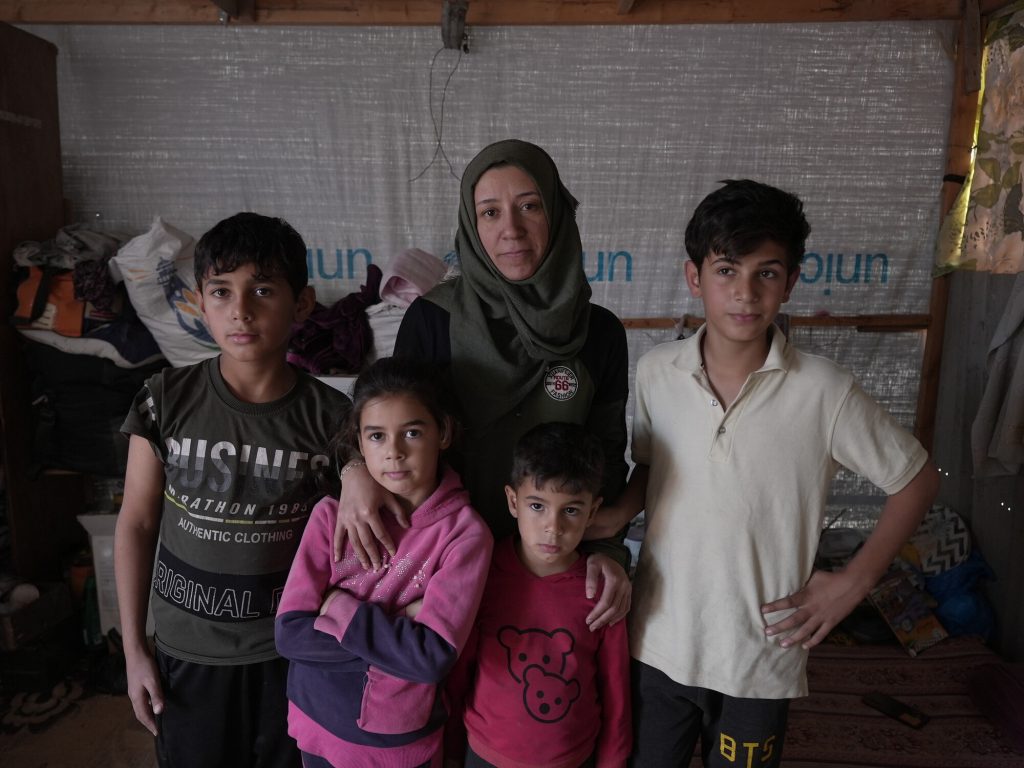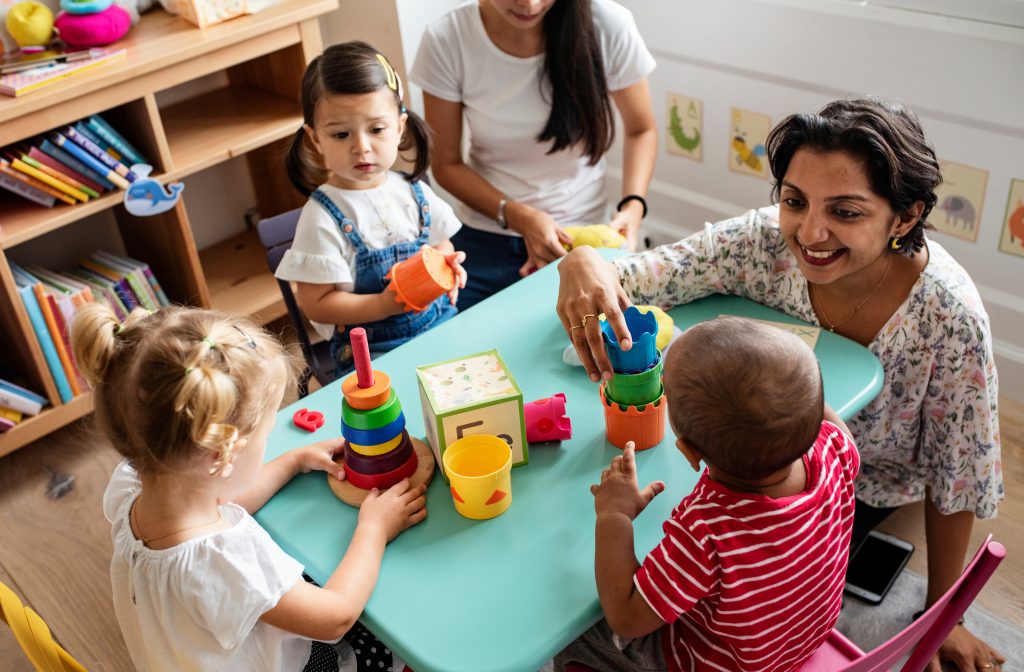On World Refugee Day, Five Displacement Crises That Can’t Be Ignored
In May, the United Nations' refugee agency revealed a heartbreaking milestone: the world now has the highest number of forcibly displaced people ever recorded. A staggering 120 million individuals have been forcibly displaced, an increase of 8.8 million by the end of 2023 compared to the previous year.
Every single day, violence, hunger, extreme poverty and the impacts of climate change leave people with no choice but to uproot their lives and families, and flee their homes. Often, refugees, internally displaced persons, asylum seekers, and other people in need of international protection are forced to seek refuge in places where they don’t have access to basic needs like water, shelter, or food. And while forced displacement is hard on everyone, women and girls are the most severely impacted. For example, refugee women are twice as vulnerable to sexual violence compared to men and boys.
Today, on World Refugee Day, we’re shining a light on 5 displacement crises that we can’t ignore – and neither should you.
The Crisis In Gaza
The situation:
The war in Gaza is an unprecedented humanitarian catastrophe that has taken a devastating toll on civilians. The most recent evacuation orders have resulted in the forced displacement of over 1 million people from Rafah into Al Mawasi, Deir al-Balah and Khan Younis. There are currently 1.7 million people, more than two-thirds of Gaza’s population, that have been displaced and crammed into an area of only 69 km.2
Displaced Palestinians live in makeshift, overcrowded encampments without water and sanitation infrastructure. Human waste and dirty water put hundreds of thousands of people at risk of diseases such as Hepatitis A and cholera. Malnutrition is also rampant. In March, the Integrated Food Security Phase Classification (IPC) Report found that famine was imminent, and 1.1 million people were expected to face catastrophic food insecurity by mid-July.
What we’re doing:
To date, Oxfam and our partners have reached 262,424 displaced people in Gaza with cash assistance, food, essential basic items and water and sanitation services. However, the flow of humanitarian aid into Gaza, which was already insufficient to meet soaring needs, has dropped by 67% since May. Oxfam is continuing to advocate for a full and immediate ceasefire so that aid can get to the people who need it most.
The Crisis In Ukraine
The situation:
The war in Ukraine has displaced more than 14 million people, 90% of which are women, children and elderly people. While many have fled to other countries in Europe, some have also returned to Ukraine. There are estimated to be more than 3.5 million internally displaced people within Ukraine.
What we’re doing:
Oxfam has responded to Ukraine’s refugee crisis by supporting over 40 organizations in both Ukraine and neighboring countries to deliver emergency life-saving assistance as well as services like legal assistance, counselling, mental health and psychological support, and integration services such as language classes and job search support. In two years, Oxfam and our partners have been able to reach over two million people.
Our work supporting Ukrainian refugees and displaced people isn’t over. Oxfam is continuing to prioritize funding local and national organizations in Ukraine to put local leadership at the forefront of crisis response, and to best respond to the needs of Ukrainian refugees and displaced people.
The Crisis In South Sudan
The situation:
South Sudan is experiencing the largest refugee crisis in Africa. Since 2013, over 4 million people have been displaced – many are displaced internally, and more than 2.4 million people had fled to Uganda, Kenya and Ethiopia. Conflict and violence compounded with worsening climate disasters have left nearly 7.6 million people in urgent need of humanitarian assistance. Extreme hunger is widespread, and millions are at risk of famine.
What we’re doing:
Oxfam has reached over 600,000 people with emergency aid and long-term support, but the worsening humanitarian situation requires much more to be done.
In 2024, more aid is needed to provide emergency food distribution, clean water, and safe sanitation facilities, as well as to support people fleeing violence to claim their rights and find safety.
The Crisis In Bangladesh
The situation:
Since 2017, 688,000 Rohingya refugees fleeing conflict in Myanmar have arrived in Bangladesh. Today, the nearly 860,000 Rohingya refugees living in Cox’s Bazaar make up one of the densest concentrations of refugees in the world, where people are living in overcrowded, unsanitary conditions, and need urgent humanitarian aid including clean drinking water, sanitation and hygiene, essential food items and emergency supplies.
More than half of the refugees in Cox’s Bazaar are women, the majority of which are girls under the age of 18. Women and girls face a series of unique threats like gender-based violence, trafficking, forced prostitution, and early forced marriage.
What we’re doing:
Oxfam is responding to the refugee crisis in Bangladesh and has reached nearly 260,000 Rohingya refugees by providing clean drinking water, portable toilets and sanitation facilities, plastic sheets, and other essential supplies. Since 2017, Oxfam has set up 443 shallow tube wells and 87 deep tube wells to provide people with clean water, and has also set up a water treatment plant in the Unichiprang and Nyapara refugee camps that pump water to the entire camps. Oxfam has also set up waste management systems and public solar lights to promote health and safety within the refugee camps.
Oxfam continues to work with the government and other agencies to make sure that new refugee camps being setup meet humanitarian standards for the delivery of aid. Going forward, Oxfam’s programs will focus on delivering clean water and sanitation, hygiene materials, and safe spaces for women.
The Crisis In Ethiopia
The situation:
Ethiopia hosts more than 823,000 refugees – one of the largest refugee populations in Africa. Much of the refugee population is concentrated in the Gambella region, where refugees from neighboring South Sudan have sought refuge in camps.
Conflict in Ethiopia’s northern region of Tigray has also disrupted millions of lives and caused internal displacement. Despite the ceasefire between Ethiopian government and the Tigray forces in November 2022, ongoing conflict in parts of the Amhara region have forced over 1.55 million people to flee their homes, leaving 9.4 million people – or one in three people in northern Ethiopia – in extreme hunger.
What we’re doing:
Oxfam is working to provide humanitarian aid to refugees in all seven camps in Gambella, providing water and sanitation assistance to 350,000 people. We intend to reach 750,000 women, men, and children in the northern region this year and next with emergency food packages, livelihood assistance, clean water and sanitation, and hygiene kits to help people survive with dignity.
Refugee Crises Need More Attention
Refugee crises are a major humanitarian concern. Not only are millions of refugees in need of immediate, life-saving assistance, but these crises can also have devastating long-term impacts for those who are displaced. For refugee children, education is often disrupted and may continue to be affected due to mounting barriers. Lack of access to education perpetuates the cycle of poverty and inequality. Oxfam works to meet refugees’ immediate needs while also advocating for their long-term wellbeing in the countries that host them.
At Oxfam Canada, World Refugee Day is an opportunity for us to reaffirm our commitment to supporting the rights and livelihoods of refugees across the world. You can help support our work and save lives by learning about and sharing what is happening with your networks, supporting our advocacy efforts, and, if you can, donating to our emergency response efforts.

